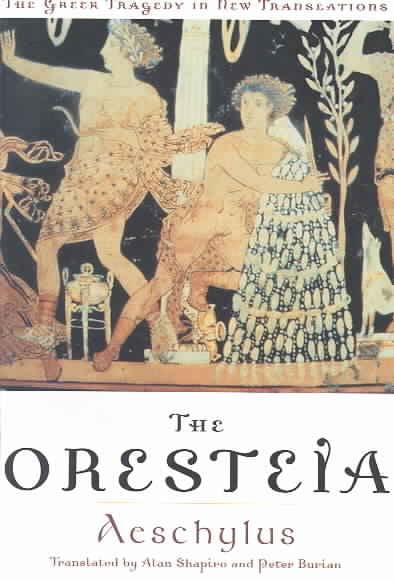


Each affordable volume reflects Oxford's commitment to scholarship, providing the most accurate text plus a wealth of other valuable features, including expert introductions by leading authorities, helpful notes to clarify the text, up-to-date bibliographies for further study, and much more. The introduction and notes emphasize the interconnection of scenes, ideas, and language that distinguishes this unique work.ĪBOUT THE SERIES: For over 100 years Oxford World's Classics has made available the widest range of literature from around the globe. The Oresteia is majestic as theatre and as literature, and this new translation seeks to preserve both these qualities. Only Orestes' appeal to the goddess Athena saves him from his mother's Furies, breaking the bloody chain together gods and humans inaugurate a way of just conduct that will ensure stable families and a strong community. Agamemnon, the first book of the series Oresteia we see Agamemnon returning in Greece after the conquest of Troy seated on a triumphal chariot. When Agamemnon is murdered by his wife, Clytemnestra, their son Orestes must avenge his father's death. The Oresteia ( Ancient Greek: ) is a trilogy of Greek tragedies written by Aeschylus in the 5th century BCE, concerning the murder of Agamemnon by Clytemnestra, the murder of Clytemnestra by Orestes, the trial of Orestes, the end of the curse on the House of Atreus and the pacification of the Furies (also called Erinyes or Eumenides). In this family history, Fate and the gods decree that each generation will repeat the crimes and endure the suffering of their forebears. Oxford Research Encyclopedias: Global Public HealthĪeschylus' Oresteia is the only trilogy to survive from Greek tragedy, and the religious and moral ideas it enacts afterwards influenced a great dramatic genre, as well as giving its three plays their lasting significance.The European Society of Cardiology Series.Oxford Commentaries on International Law.Forming an elegant and subtle discourse on the emergence of Athenian democracy out of a period of chaos and destruction, The Oresteia is a compelling tragedy of the tensions between our obligations to our families and the laws that bind us together as a society. In Agamemnon, a king's decision to sacrifice his daughter and turn the tide of war inflicts lasting damage on his family, culminating in a terrible act of retribution The Libation Bearers deals with the aftermath of Clytemnestra's regicide, as her son Orestes sets out to avenge his father's death and in The Eumenides, Orestes is tormented by supernatural powers that can never be appeased. As they move from darkness to light, from rage to self-governance, from primitive ritual to civilized institution, their spirit of struggle and regeneration becomes an everlasting song of celebration. In the Oresteia Aeschylus addressed the bloody chain of murder and revenge within the royal family of Argos. The only trilogy in Greek drama that survives from antiquity, Aeschylus' The Oresteia is translated by Robert fagles with an introduction, notes and glossary written in collaboration with W.B.


 0 kommentar(er)
0 kommentar(er)
